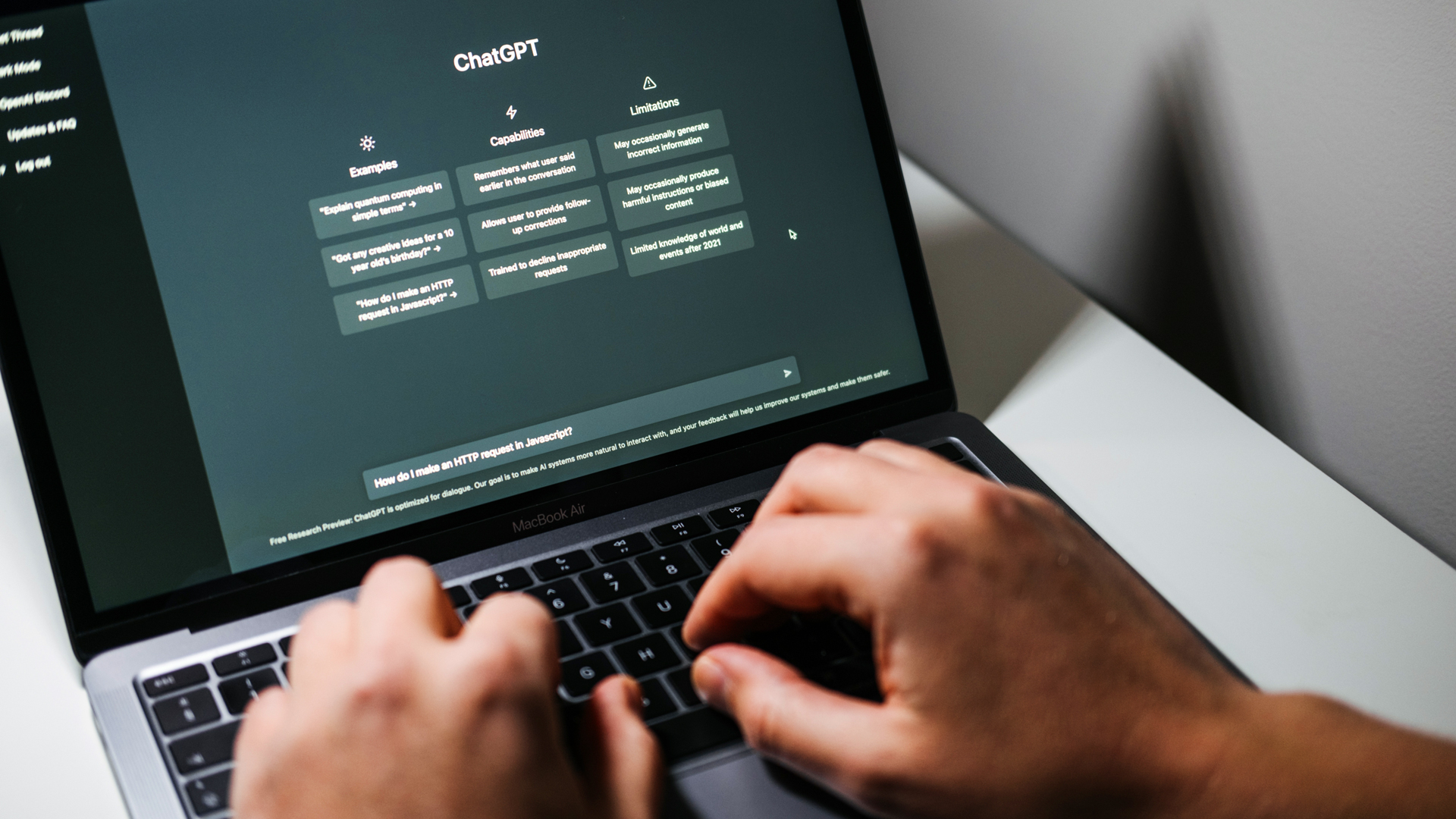ChatGPT wants to replace Google but I’m not convinced it’s a competition
Why more of us are asking ChatGPT instead of Googling

Sign up for breaking news, reviews, opinion, top tech deals, and more.
You are now subscribed
Your newsletter sign-up was successful
ChatGPT is more popular than ever. Latest estimates suggest more than 400 million people are using it every week, and it currently ranks as the eighth most visited website in the world. We know that people are using ChatGPT for everything from writing and productivity to therapy, shopping, and vacation planning. But increasingly, they’re also using it to search. Asking ChatGPT things that they might have typed into Google before.
Of course, Google is still the dominant force in search, processing billions of queries every day and maintaining a much larger user base than ChatGPT, at least for now. While ChatGPT’s popularity is surging, most people still use it for a mix of creative, informational, and conversational tasks rather than as a true Google alternative. We’ve also explored why using AI for search has its pitfalls – including hallucinations, lack of citations, and fact-checking challenges.
But there’s no doubt that ChatGPT, and other AI tools like it, present a growing challenge to traditional search. Which begs the question: could ChatGPT ever actually replace Google?
Different tools, different questions
First, it’s worth understanding what each tool is really for. “No, ChatGPT won’t fully replace Google because they solve fundamentally different information problems,” says Rohan Sarin, a former product lead at Google and Microsoft, now at AI voice-to-text company Speechmatics.
If you know what you want, like a specific website or the name of the actor from that film you just watched, then Google should still be your first port of call. It’s fast, efficient, and connects you directly to the source. You get a buffet of links and then decide what’s credible or useful.
ChatGPT, on the other hand, is a better option when you're not sure exactly what you're looking for. It helps you shape your thinking, refine your questions, and even synthesize ideas. “ChatGPT works best when I’m exploring and don’t actually know what I need yet,” says Sarin.
Put simply, Google connects you to the “raw” internet. Whereas ChatGPT acts more like a guide, interpreting, summarizing, and occasionally making confident guesses (for better or worse).
Sign up for breaking news, reviews, opinion, top tech deals, and more.
“Google gives you unfiltered access to original sources, while ChatGPT interprets and synthesizes,” Sarin adds. That does mean Google should still be your go-to for verifying information or getting unfiltered facts. But it’s also worth pointing out that interpretation isn’t unique to ChatGPT. “Though honestly, the world already runs on interpretation – newsfeeds, ads, search ranking, customer intelligence,” Sarin explains.
He still relies on Google for many tasks. “When I need to verify something or access primary data, Google’s directness is irreplaceable." But the broader point stands, which is that ChatGPT’s interpretation layer isn’t all that controversial; it’s already (sort of) how our information is filtered and delivered.
What do users really want?
Google might still be the best option for most search queries, but let’s be honest, most of us aren’t always doing deep research or checking sources. Sometimes we do just want fast, helpful answers.
“Most users don’t particularly care about source verification or getting the exact right answer – they just want something that works,” says Sarin. “Convenience trumps precision for the majority.”
And this is where ChatGPT shines. There aren’t any ads, and you don’t need to trawl through forums to find a useful reply from years ago. It’s just a clean, human-sounding (sort of) response. When you’re tired, in a rush or already using ChatGPT for other tasks, it’s often easier to stay on the platform.
But don’t count Google out
But despite ChatGPT’s meteoric rise and its convenience, experts still don’t see Google disappearing.
“I don’t see ChatGPT fully overtaking Google’s billions of users,” says Eric M. Hoover, Director of SEO at digital marketing company Jellyfish. “Google will always have a stable user base simply because Search is – and will likely remain – baked into browsers, apps, and new AI features inside and outside of Search.”
Hoover explains that Google isn’t standing still when it comes to AI either, which should keep it competitive with OpenAI. It’s integrating Gemini and AI Overviews, as well as many more AI-driven features that blur the line between search engines and large language models.
So if you’re looking for a clear winner here, you won’t find one. Google’s not going anywhere, but neither is ChatGPT.
Just like Google didn’t replace books, and social media didn’t replace blogs, ChatGPT won’t replace Google. But it is changing how we search, especially when we’re not just trying to find something, but to make sense of it.
That’s where ChatGPT can offer something more in helping us explore ideas, simplify complexity, and make connections we might not have seen on our own.
For now, we still need different tools for different purposes. And that means the smartest move isn’t choosing one but knowing when to use both.
You might also like

Becca is a contributor to TechRadar, a freelance journalist and author. She’s been writing about consumer tech and popular science for more than ten years, covering all kinds of topics, including why robots have eyes and whether we’ll experience the overview effect one day. She’s particularly interested in VR/AR, wearables, digital health, space tech and chatting to experts and academics about the future. She’s contributed to TechRadar, T3, Wired, New Scientist, The Guardian, Inverse and many more. Her first book, Screen Time, came out in January 2021 with Bonnier Books. She loves science-fiction, brutalist architecture, and spending too much time floating through space in virtual reality.
You must confirm your public display name before commenting
Please logout and then login again, you will then be prompted to enter your display name.